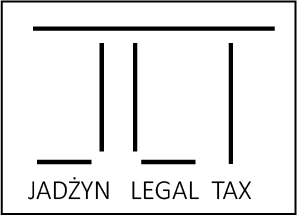
The employer’s primary duty, who posts an employee to Germany, is the payment of the minimum wage (Mindestlohn). The minimum wage in Germany is due for each type of work performed in Germany. It concerns not only permanent work and employees posted to Germany, but also employees on a business trip in Germany, seasonal workers or employees leasing. The minimum wage in Germany is regardless of the form of employment and also applies to contractors or persons performing work under a contract for specific work.
The minimum wage in Germany is governed by the German Minimum Wage Act (Mindestlohngesetz, MiLoG) and based on the provisions of collective agreements. When setting the minimum rate, first check the industry in which the company is posting the employee to Germany. This is not often so obvious. In the case of enterprises operating on the border of several industries (e.g. a construction and assembly services, providing electrical services and scaffolding construction), the qualification is often incorrect, which may lead to violation of the obligation to pay the minimum wage.
If we qualify the industry correctly, then it may turn out that the minimum wage in Germany differs depending on the region (“old” Bundesländer / federal states – formerly FRG, “new” Bundesländer – formerly the GDR, or the city of Berlin). The minimum rate is also influenced by the classification of a given employee, whether he is a qualified professional or just an assistant doing simple work.
Before posting workers to Germany, it is worth getting advice from a law firm specializing in German law.
Minimum wage in Germany in 2018, broken down by industry
| Industry | rate in euros gross / hour |
| General rate (applicable if there is no collective agreement) | 8.84 |
| Construction industry | Western federal states: · Worker – 11.75 · Qualified worker – 14.95 Eastern federal states – 11.75 Berlin: · Worker – 11.75 · Skilled worker – 14.80 |
| Roofing | Uneducated worker – 12.20 Skilled worker – 12.90 |
| Installation of electrical installations | 10.95 |
| Meat industry | 9.00 |
| Cleaning of buildings | Western federal states and Berlin: · Cleaning the interior – 10.30 · Façade cleaning and window cleaning – 13.55 Eastern federal states: · Cleaning the interior – 9.55 · Facade cleaning and window cleaning – 12.18 |
| Installation of scaffolding | 11,00 |
| Temporary employees | Western federal states – 9.23 East Lands and Berlin – 8.91 |
| Painters and varnishers | Western federal states and Berlin: · Uneducated worker – 10.35 · Qualified employee – 13.10 Eastern federal states: · Uneducated worker – 10.35 · Qualified employee – 11.85 |
| Care industry | Western federal states and Berlin – 10.55 Eastern federal states – 10.05 |
| Chimney Sweeps | 12.95 |
| Agriculture, forestry and gardening | 9.10 |
| Stone industry | 11.40 |
| Waste management | 9.10 |
The JLT law firm comprehensively advises foreign companies in Germany, including those provided services by posted employees in Germany. Tax and legal advisory services in Germany are provided as part of cooperation with German lawyers and tax advisors. We provide support from a specialist in German matters. The JLT Law Office also makes all applications and formalities related to posting employees to Germany.
radca prawny i doradca podatkowy
Rechtsanwalt und Steuerberater
JLT Jadżyn Legal & Tax
Poznań / Posen

